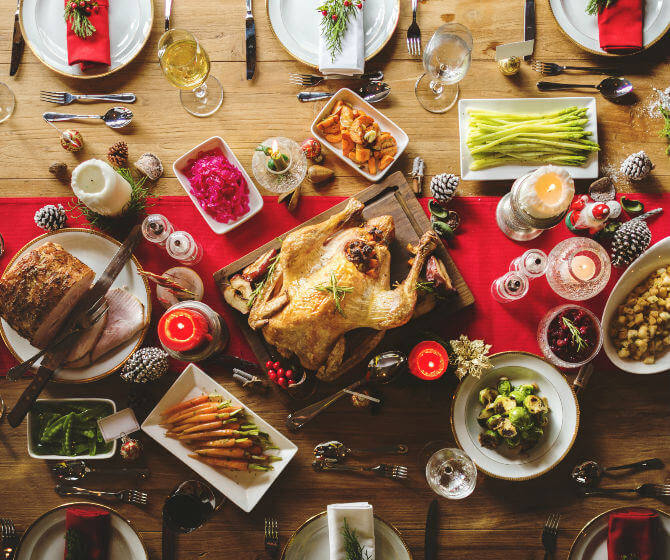By Will Hawkins
Why are Brussels sprouts good for you? A nutritionist's definitive guide.
Love them or hate them, Christmas just wouldn't be Christmas without Brussels sprouts.
You probably already know that they're good for you, but do you know why? Our expert nutritionists have looked at the health benefits of sprouts and explained how your body use all the nutrients they contain.
So, are brussel sprouts good for you and why ?
1. Vitamin K
Brussels sprouts are a very good source of Vitamin K, which helps with blood clotting. This is useful if you suffer a cut or graze, as it means the wound will heal faster.
Studies have shown that Vitamin K can also contribute to strong bones and protect you against osteoporosis.
A portion of sprouts will give you more Vitamin K than your body actually needs, but this isn't a problem, as your liver stores any excess for future use.
100g of sprouts provides 175% of your daily vitamin K.*
2. Vitamin C
Vitamin C performs a wide variety of functions. It protects your body's cells against damage and helps maintain healthy skin, blood vessels, bones and cartilage.
It's an effective antioxidant that promotes iron absorption, repairs tissue damage and strengthens your immune system. Like Vitamin K, Vitamin C also contributes to the healing of wounds.
100g of sprouts provides 141% of your daily vitamin C.
3. Vitamin A
It's important to get enough Vitamin A, as this helps your immune system protect you against disease. Brussels sprouts can certainly set you on your way to achieving this target.
A form of Vitamin A called beta-carotene improves your vision, particularly in low light. It's normally associated with carrots, but you'll find it in sprouts too.
Vitamin A also maintains healthy skin, specifically the lining of certain areas, such as the inside of your nose.
100g of sprouts provides 15% of your daily Vitamin A.
4. Fibre
We've all heard the jokes about what will happen if you eat too many sprouts, but actually your digestive system is an area where they can do a lot of good. You have fibre to thank for that.
Sprouts contain both soluble and insoluble fibre. Soluble fibre dissolves in water and helps make your poo softer and easier to pass, avoiding problems such as constipation.
It's also been shown to lower cholesterol. Meanwhile, insoluble fibre helps move your poo through your digestive system quickly and easily.
Fibre also makes you feel full, so having plenty of healthy Brussels sprouts with dinner might help you resist that extra mince pie later in the day.
100g of sprouts provides 15% of your daily fibre.
5. Folate
Folate is an important B vitamin that helps with the formation of red blood cells. These carry oxygen around your body to the organs that need it.
Your body can't store folate, so you need to have some in your diet every day. On Christmas Day, Brussels sprouts are perfect for the job.
100g of sprouts provides 15% of your daily folate.
6. Potassium
Potassium helps with nerve function and muscle contractions. This is useful all over the body, but is especially important for your heart. In effect, potassium contributes to a regular heartbeat.
Its other functions include maintaining the fluid balance of your body and supporting strong bone density.
100g of sprouts provides 11% of your daily potassium.
7. Manganese
Manganese maintains and activate enzymes that support a number of important functions, including digestion and the metabolisation of carbs and proteins.
In other words, having sprouts on your plate means that your digestive system is better able to deal with the rest of your Christmas dinner.
100g of sprouts provides 11% of your daily manganese.
8. Vitamin B6
Less commonly known as Pyridoxine, Vitamin B6 is a vital nutrient that helps the body use and store energy from the food you eat.
It also forms haemoglobin, which is a key part of red blood cells and helps ensure all the oxygen in your blood can get where it's needed.
100g of sprouts provides 10% of your daily Vitamin B6.
9. Iron
Like folate, iron plays a key role in the creation of red blood cells. If you don't get enough iron, you are at risk of anaemia, which occurs when your organs aren't getting as much oxygen as normal.
Symptoms of anaemia include tiredness, a paler complexion than usual and shortness of breath. Getting plenty of iron-rich food such as Brussels sprouts into your diet will help stop this from happening.
100g of sprouts provides 7% of your daily iron.
10. Low calorie
As with most green vegetables, the number of calories in Brussels sprouts is very low. While plenty of Christmas treats are packed full of calories, sprouts aren't one of them, so feel free to help yourself to seconds.
100g of sprouts contains just 43 calories.
11. High in antioxidants
Antioxidants protect your body against the damage caused by free radicals, and tests have shown that Brussels sprouts contains plenty of them.
Specifically, laboratory tests have shown that an antioxidant called kaempferol has the potential to slow the growth of cancer cells. Many studies have suggested that the antioxidants in sprouts can lower your risk of bowel cancer.
How healthy is your Christmas dinner?
Now that you've seen exactly what a serving of sprouts can do, you might be wondering about the rest of your Christmas dinner. Well, we've looked at that too!
Take a look at our nutritional guide to Christmas dinner and see the effect all that food has on your body.
How healthy is your Christmas dinner?*Based on a diet of 2,000 calories per day.

